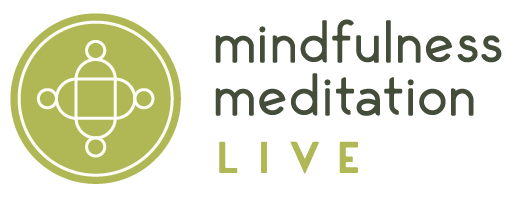Course Listing Requirements
Listed below are standards for listing courses. This is different from good practice standards for teaching or teacher training, which you can read more about here. The following section addresses what we can or cannot call “MBSR”.
MBSR Course Standards
Firstly, all Teachers who are listing MBSR courses on this site are either Qualified or Certified MBSR Teachers from institutions aligned with the International Mindfulness Integrity Network. What does that mean? Find out here.
Secondly, courses are called “MBSR” only if they abide by the basic standards set forth by the training organizations. These are laid out in two main documents:
The most recent MBSR curriculum from the training organizations aligned with the International Mindfulness Integrity Network. (If you are an MBSR teacher, be sure to stay in touch with your credentialing institution to receive the most updated version of the curriculum, typically published every few years).
The Standards of practice for MBSR which were first formalized in 2001 by The Center for Mindfulness in Medicine, Healthcare, and Society at UMass Medical School. They were updated every few years, most recently in 2014.
Based on these, we abide by these minimum requirements in terms of format and number of hours of instruction:
MBSR Orientation Session (generally 75 min to 90 min depending on group size)
This is a pre-program session that is distinct from Class 1 of the 8-week MBSR protocol. The MBSR Orientation has its own specific curriculum devised for a plenary session, usually followed by the individual intake process. It is not a public lecture, or a drop in-group.
Topics covered: the history of MBSR, definitions of mindfulness, taster practice, benefits and risks of MBSR, practical and logistical information about the course, and what the daily commitment entails.
MBSR applicant interviews (usually 5 to 10 minutes per person, more as needed)
Usually following the formal orientation, the teacher meets briefly with each person privately to review their application paperwork, discuss any questions or concerns on either the participant or the teacher’s part. This meeting can be immediately following the orientation or later, by phone or videoconference.
MBSR is not always appropriate for everyone at any given time. The participant and teacher discern any risks or alternative approaches to MBSR.
The Orientation and the individual interviews are key to practicing MBSR ethically in that they provide the basis for participants to give an informed consent to their participation. This is often formalized in a consent agreement document that is completed prior to Class 1.
8 weekly sessions (Classes 1 to 8) of 2.5 hours
The first and last session often extend to 3 hours, depending on the size of the group. Teachers usually inform and remind each cohort that Class 1 and Class 8 will last longer, and provide specifics.
MBSR “All Day” or “Retreat” of 7.5 hours
This is an extended practice period, generally scheduled between classes 6 and 7, or sometimes between classes 5 and 6.
It is an integral part of the course, not an “add-on.”
Exceptions: We take into consideration the specific situations of qualified and certified MBSR Teachers who may not fully adhere to the above standards for justifiable reasons pertaining to their context and to matters beyond their control, but who make a conscious effort to cover thoroughly all aspects of the curriculum. Accepted exceptions might include:
If a class size is small (8-12 people) weekly sessions are sometimes shorter (2hrs vs. 2.5 hrs). If a course posted lists a 2-hour slot versus the standard 2.5 hours, then the maximum number of attendees should be under 12 people.
Certain institutional contexts (Universities, Health Clinics, etc.) are unable to provide a suitable dedicated practice space for 7.5 hours for the MBSR All-Day. This can result in the All Day only last 6 or 6.5 hours, for example.
In certain circumstances MBSR Teachers provide alternatives to the Orientation session if an applicant could not attend, such as a recording or an extended phone conversation that covers the material, in addition to the in-take process. However, a public lecture or a drop in class cannot supplant the MBSR Orientation as it is designed.
Important: Many wonderful adaptations of the seminal MBSR curriculum have been developed over the years. The inceptor of the program, Jon Kabat-Zinn, as well as senior faculty who continue to steward the curriculum, have always encouraged developments and welcomed innovations, while also making the very clear request that these adaptations not be called “MBSR.” This is critical for the integrity of the curriculum, the certification process and the trust placed in the program by referring health care professionals. We are also being asked to respect the body of research regarding the specific 8-week MBSR protocol. Issues arise when claims about the benefits of about such and such course are made using the research about MBSR, when in fact what is being taught does not comply with the standards set forth by credentialing institutions.
